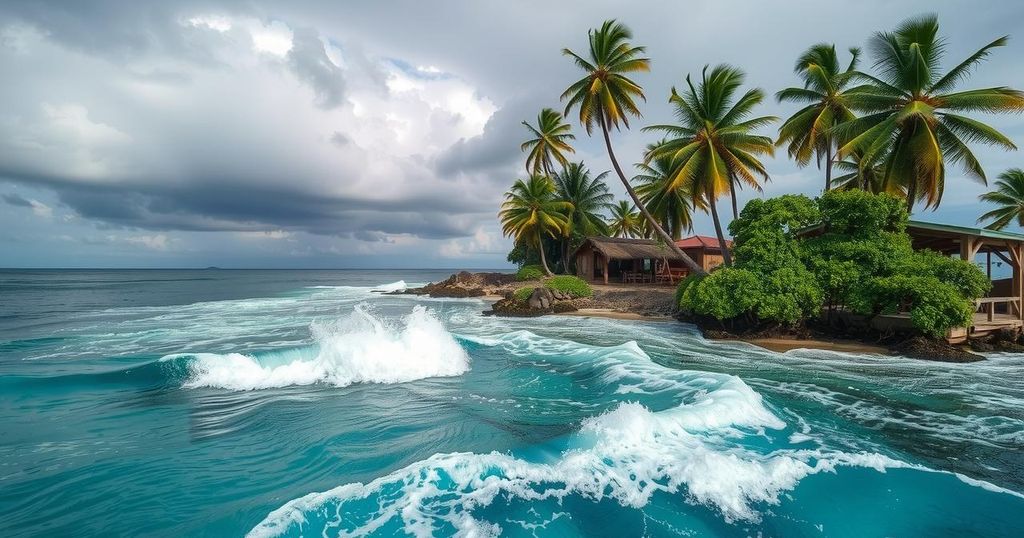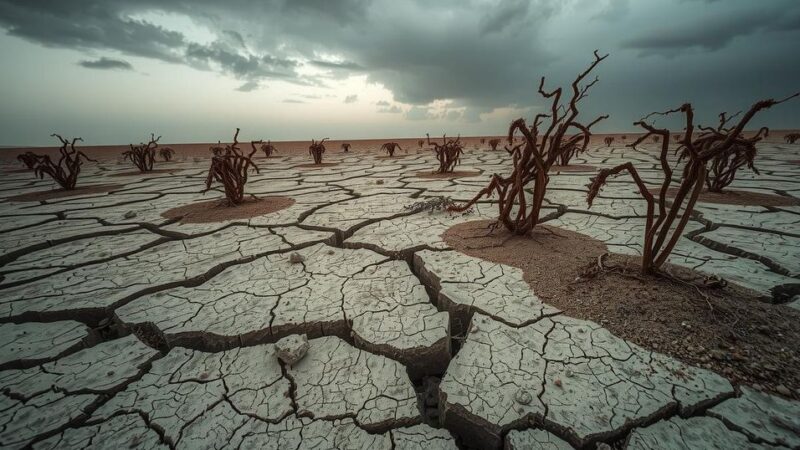Cyclone Chido is heading towards Comoros, Madagascar, and Mayotte, prompting emergency measures, school closures, and evacuations. Mozambique has issued a red alert, anticipating over 2 million people to be affected. The French government is sending aid, and precautions are underway to handle potential flooding and disease outbreaks linked to the storm.
The Indian Ocean islands of Comoros, Madagascar, and Mayotte are preparing for the arrival of Cyclone Chido, which is forecasted to strike Africa’s east coast imminently. With expectations that Chido will hit the Comoros early Saturday, authorities announced the closure of schools and initiated emergency protocols. The cyclone, expected to pass the northern tip of Madagascar, has prompted the French national weather service to place Mayotte under a red alert due to its potential danger.
Additionally, Mozambique has issued a red alert for its northern provinces, Cabo Delgado and Nampula. It is estimated that over 2 million individuals could be impacted by Chido’s landfall, slated for early Sunday. “We believe that we can initially start working with an estimate of around 2.5 million people… who may be affected and will need to be rescued,” stated Ana Cristina, director of Mozambique’s National Emergency Operations Center.
Madagascar has already begun taking precautionary actions, including alerts via cellphones and radio warnings advising residents to prepare for the cyclone. The government has been actively distributing emergency supplies and food to the areas expected to face severe impacts, particularly in the northern region of Diana, where close to 20,000 individuals may be affected. Assistance is also being mobilized by the French government, deploying approximately 110 personnel and emergency equipment to Mayotte, including specialists in search and rescue operations.
The cyclone season from December to March has previously seen destructive storms in the region, including Cyclone Idai in 2019, which resulted in over 1,300 fatalities in Mozambique, Malawi, and Zimbabwe. Crisis24 has indicated that Cyclone Chido presents a risk of severe flooding and landslides, raising concerns over potential outbreaks of waterborne diseases such as cholera, as well as mosquito-borne illnesses like dengue and malaria, similar to previous cyclone impacts linked to climate change.
The Indian Ocean region is currently within its cyclone season, which typically lasts from December to March. Disastrous storms have frequently impacted the area in recent years, leading to significant loss of life and damage. Cyclones like Idai and Freddy exemplify the increasing severity attributed to climate change, prompting the need for extensive emergency preparedness measures to mitigate their effects on vulnerable populations.
In summary, Cyclone Chido poses a substantial threat to the islands of Comoros, Madagascar, and Mayotte as well as the nearby mainland regions of Mozambique. Authorities are mobilizing resources and issuing alerts to protect residents, as historical data suggest that cyclone-related disasters may become more frequent and severe due to climate change. Robust emergency responses and community preparation are critical to minimizing the potential impacts of such storms in the future.
Original Source: abcnews.go.com







